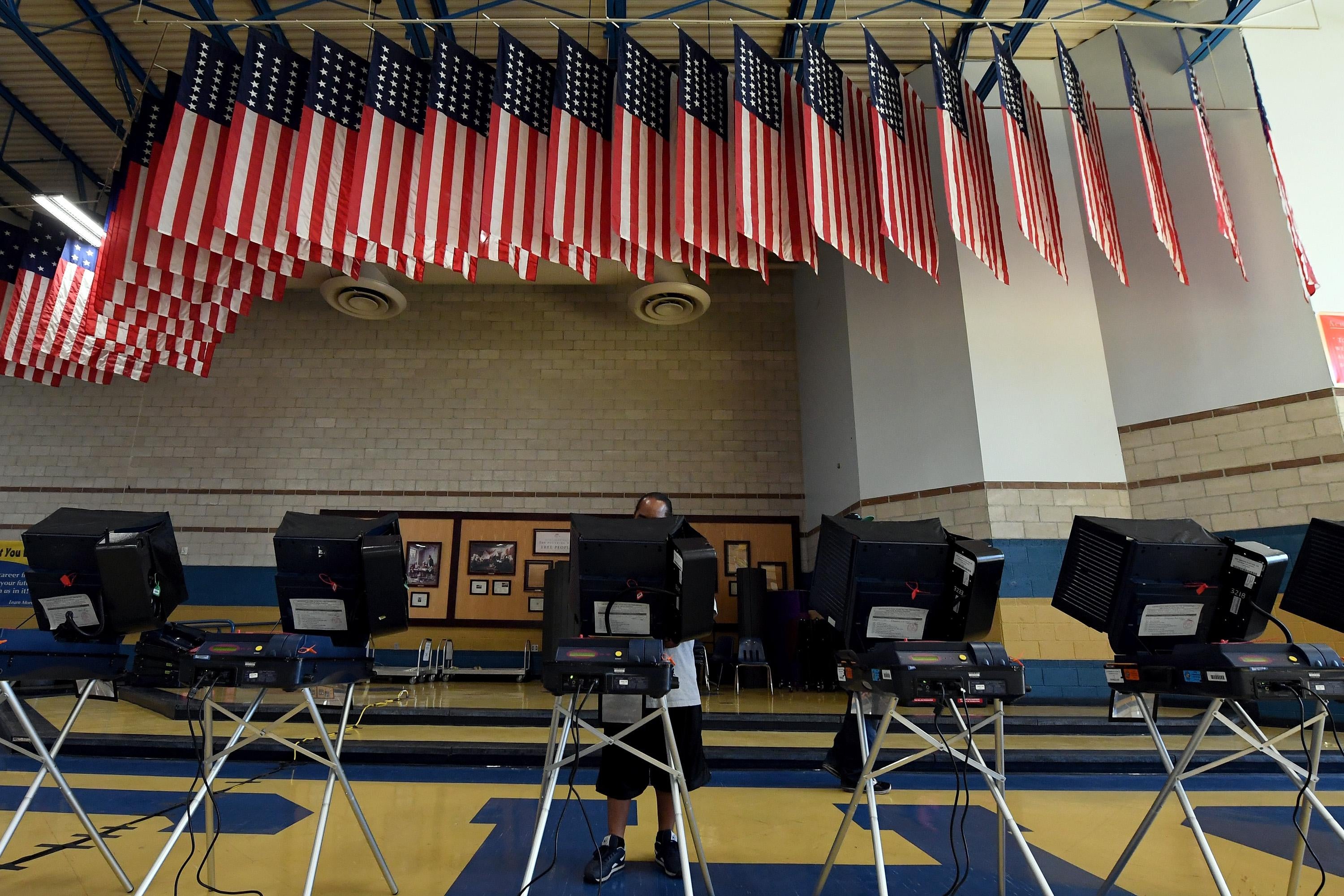House Republicans sparred with Democrats on Wednesday over whether a new spending bill would include additional funds to help states secure their polling systems in advance of midterm voting in November. They rebuffed the push, and the House is expected to vote Thursday on a version of the bill that excludes more grants for election security, according to the Washington Post.
Democrats asked for the funds in light of the latest developments of special counsel Robert Mueller’s investigation into Russian interference in the 2016 election. Last Friday, the Department of Justice indicted 12 Russian nationals accused of participating in the hacking of the Democratic National Committee and then-candidate Hillary Clinton’s campaign in order to sway the election for Donald Trump. The debate on Wednesday in the House followed comments from President Trump this Monday in which he denied that Russia had sought to undermine the U.S. elections. Following backlash from both parties, Trump lightly walked back those comments on Tuesday, saying that he does accept the U.S. intelligence community’s charges of Russian efforts to sabotage American elections. On Wednesday he said “no” when asked if the Kremlin is still “targeting” the United States, even though his administration’s own intelligence officials disagree.
None of this was enough for House Republicans to seize an opportunity to help states update and lock down their election systems. This November, most states will use voting machinery and software that’s more than 10 years old, according to a March report from the Brennan Center for Justice at New York University, which tracks the state of voting systems across the country. Those machines are largely using archaic software systems that are no longer routinely patched for security vulnerabilities. Thirteen states will still use electronic paperless voting machines this year, which are particularly susceptible to attack, since they don’t leave a paper trail that can be confirmed by the voter and rechecked by election officials—and in the case of a system crash these machines could permanently lose votes that cannot be recovered.
Republicans argued that Congress already doled out $380 million this year in grants to states to update their systems, pointing out that many of those states still have money left over and that there haven’t been new requests from states for more money. But Democrats responded that some states have only just received their grants and other state officials are unlikely to request more funding if it’s not already available.
The Department of Homeland Security deemed election systems part of the nation’s critical infrastructure in January 2017, putting voting machines in the same category as our energy and transportation infrastructure. The refusal to spend more to update clearly outdated critical election infrastructure is akin to leaving a giant security hole in the electrical grid so that a hack could result in tens of millions of Americans without power. Perhaps Republicans worry that acknowledging the vulnerability of U.S. election systems to cyberattacks would be a tacit admission that the 2016 election could have been hacked, too. Or maybe, like the president, Russian election meddling is simply something that doesn’t bother them.
